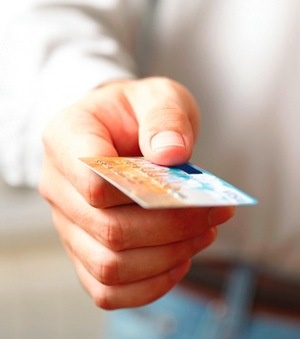The team here at Ginsberg hopes that this article by Kevin Mulligan about how to save money through credit cards is helpful. You can read the original and full article here.
Your credit card spending says a lot about you; it might even say things that you don’t even realize. There are many things you can learn from your credit card bill. Which ones can have the biggest financial impact on your life?
Of course your credit card bill is going to show you how much money you spent last month, but you knew that. Did you know it could show you many other things?
One of the greatest tools you gain access to by putting a majority of your spending on a credit card is a categorical look at your spending. For many people simply figuring out where they spent that $20 bill or what that $72 check last month was for is complicated. You don’t get any trend data or the ability to look at your spending from a 30,000 foot view.
However, when you use a credit card, you do.
At minimum the major credit card companies offer a year-end statement that will break the last year’s worth of spending down into major categories. The best accounts will let you sort, analyze, and dig in to those categories – even down to specific stores.
With these modifiable views you can take a thorough look at your spending to figure out:
If you are using a credit card wisely you shouldn’t have anything in this category. But hey, sometimes life happens, right? Seeing how much interest you paid on the balance and how much it will cost you to pay off with just minimum payments should encourage you to avoid paying interest moving forward.
If you unfortunately need to carry a balance for a long period of time, knowing your interest rate is the first step in finding a better deal. If your credit card is charging you 15% to 20%, you need to find a card with a low interest rate, a balance transfer offer, or both.
Maybe you’re a responsible credit card user that signed up for the card a long time ago. You know you get some sort of rewards for your spending, but can’t remember how much. Your statement will have a breakdown of what kind of rewards you are earning.
This can help you in two ways:
Your credit card spending says a lot about you; it might even say things that you don’t even realize. There are many things you can learn from your credit card bill. Which ones can have the biggest financial impact on your life?
Of course your credit card bill is going to show you how much money you spent last month, but you knew that. Did you know it could show you many other things?
One of the greatest tools you gain access to by putting a majority of your spending on a credit card is a categorical look at your spending. For many people simply figuring out where they spent that $20 bill or what that $72 check last month was for is complicated. You don’t get any trend data or the ability to look at your spending from a 30,000 foot view.
However, when you use a credit card, you do.
At minimum the major credit card companies offer a year-end statement that will break the last year’s worth of spending down into major categories. The best accounts will let you sort, analyze, and dig in to those categories – even down to specific stores.
With these modifiable views you can take a thorough look at your spending to figure out:
- Where you spent the most money last year
- How much you spent on groceries versus eating out
- How much you spent on car insurance
- How much you spent on utilities
- How much you wasted on interest and fees
If you are using a credit card wisely you shouldn’t have anything in this category. But hey, sometimes life happens, right? Seeing how much interest you paid on the balance and how much it will cost you to pay off with just minimum payments should encourage you to avoid paying interest moving forward.
If you unfortunately need to carry a balance for a long period of time, knowing your interest rate is the first step in finding a better deal. If your credit card is charging you 15% to 20%, you need to find a card with a low interest rate, a balance transfer offer, or both.
Maybe you’re a responsible credit card user that signed up for the card a long time ago. You know you get some sort of rewards for your spending, but can’t remember how much. Your statement will have a breakdown of what kind of rewards you are earning.
This can help you in two ways:
- you can tailor your spending to the highest rewarding categories for that card
- you can decide if you need to move to a more rewarding card

 RSS Feed
RSS Feed